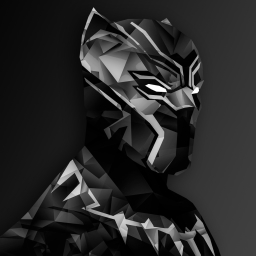The name given to the group of orcs that rebelled from the rule of
Baul Carnago, breaking away from the nation of
Syndal and returning to the lifestyle that orcs had before the rule of Baul, hence the term "true" orcs. The people of Syndal refer to them with the slur Takhenerast, Kabel for "savage people".
History
The culture of the True Orcs begins with the aftermath of
the War of the Gods, where the orcs had been reintroduced to the newly-rebuilt world at the island of
Tekam. With their belief that those valiant in battle would go to heaven, they formed war clans, which fought each other for food and land. In the year 757, one of the war clans was taken over by Baul Carnago, who forced it to invade the other clans, breaking the agreement that, while they would battle, no clan would lead another clan to extinction or take over its lands. Soon this clan, with Baul as the leader, was in control of the whole island. Baul set his sights on the continent of
Syndal, which lies to the south of Tekam, which he invaded in 804, driving out the
Elves who already lived there. Now the system of war clans had been suppressed, and many of the orcs disagreed. All along the eastern coast of Syndal, orcs rebelled, declaring that they would return to their original heritage of war clans. These orcs became the True Orcs.
Naming
True Orcs typically name their children after forces or aspects of nature, believing that they will grow to have physical or mental characteristics like what they have been named after. E.g flexible like water, strong like a lion, vigilant like an eagle.
Naming Traditions
- Baul (Stone/earth, has severe negative connotations due to the rule of Baul Carnago)
The Orcish equivalent of a surname is the name of the person's war clan. E.g. Eppi of the Kekka clan. In the case of a person being expelled from their clan, they have nothing equivalent to a last name, although those that do not agree with their expulsion may still refer to themselves by their original name, despite having no right to use it anymore.
Culture
Almost all True Orcs speak Kabel, the language of the orcs. The dialect varies, but most speak either Capperam, the dialect of the kingdom of
Syndal, from which they rebelled, or Yassif, the dialect of the original orcish war clans that True Orcs seek to replicate so closely.
The group generally exists in war clans, although this way of life is not nearly as barbaric as other cultures often make them out to be. The clans' leaders are generally the strongest warriors, and social hierarchy is generally organised in the same way.
It is considered very offensive to hold one's weapon by the handle while in someone’s presence, as it suggests that they wish to harm them. Instead, it is usual to cradle it in one's arms.
Embroidery is a common pastime among True Orcs, and many of them decorate their family’s tent with the symbol of their clan. Orcs do not make buildings, as they are nomads, living in tents. The tents are usually very large, supported by wooden poles and are able to hold an entire family (usually of around twelve).
A celebration is held for people at the age of twenty, and again at the age of thirty. Twenty is the point of adulthood, and in it one is expected to go out into an area of land that has been agreed as neutral ground by the other clans, and survive alone for a month (usually in the summer months) with only a weapon and basic clothing. It is timed so that the end of the month is the orc’s twentieth birthday. After that month, a feast is held followed by days of rest for them. The celebration at thirty marks old age (a reasonably old age for the low living standards of these people), and the person has a morning of feasting and leisure, followed by an afternoon of work.
Upon death, people are cremated, and their ashes are scattered on the ground and left behind when the clan next moves. In some clans, the dead are cut into pieces and fed to wild animals, to "pay nature back".
It is generally considered unacceptable to show any reverence for or agreement with
Baul Carnago, which any self-respecting true orc hates.
Orcs believe in a place comparable to heaven, known as Hassem, where they believe that those that die valiant deaths in battle will go. Because of this, orcs believe that killing people in war is completely justified, as all it is doing is sending people to heaven. Still, orcs believe that other forms of killing is not justified, including hunting, as it is not war and therefore will not send the victim to Hassem.
Ideals
Orcs value physical strength very highly, and more muscular people are seen as beautiful.
Despite the stereotype that many other cultures hold that orcs mistreat women, and even rape them, orcs generally treat females more equally than most other cultures. Orcish war clans are the only fighting group with over 40% of its warriors to be female, the second being
the Kingdom of Erdantia, coming in at around 20%, less than half that of the True Orcs.
It is forbidden to marry until the age of fifteen, and consent from both parents is needed until twenty, as dictated by the councillors of each clan. Toleration of homosexuality varies between clans, although it is generally respected to an extent. Almost all marriage is kept within clans, and inbreeding often occurs as a result. If a child is had from parents of two different clans, then it is up to the leaders of each clan to work out which clan the child should belong to. The parents do not get a say a discussion persay, although they can choose to end the debate by giving the child to the other clan. Polygamy is widely accepted, even encouraged among the stronger in the clan.












I do like that you've put a lot of thought into their culture, and it is very interesting. However, I do have a few issues. First, there seem to be only three names for each gender. I assume there are more, otherwise that would get very confusing quickly, and that bit just seems rather sparse. Second, a lot of these sections feel very short and cold, and that makes it kind of hard to feel like this is a living culture. I think this is a good idea, it just needs some polish.
Alright, thanks a lot for the advice. I was always planning to add more names, but just kinda procrastinating about it, I get now that it’s affectingly the quality of the article. Thank you.